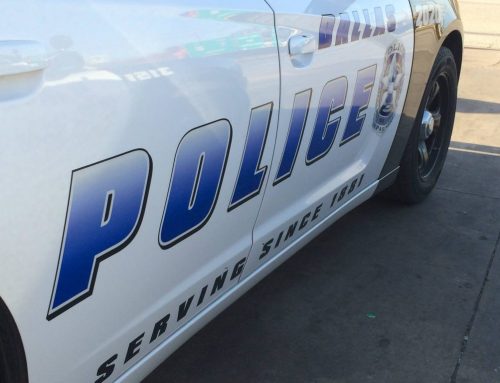Each month, the Advocate visits with Sgt. Jim Little, Sr. Cpl. Pam Maines and Sr. Cpl. Rick Janich of the East Dallas Storefront police station, 1327 N. Peak Street (670-5523). The Storefront is best-known for its bicycle patrol officers, who pedal the streets of East Dallas weekdays. The City of Dallas funds the Storefronts, but numerous volunteers and organizations provide both hours and funds to develop special programs aimed at building better relations among police officers and neighborhoods. (Editor’s Note: Sgt. Mike Gurley, who formerly headed the Storefront, has been reassigned.)
Advocate: Jim, where were you working prior to the Storefront?
Jim: I’ve been with the department for 18 years, nine of which have been deep nights (eight-hour shifts beginning at about midnight). The last three years I spent in deep nights. And I was assigned to the West Dallas Storefront for four years before that.
Advocate: Deep nights…it would be hard for me to get very excited about that kind of shift.
Rick: Some people really like it. You get a lot of activity, there’s not traffic, it’s cooler at night – especially in the summer.
Jim: Traditionally, there’s less seniority on deep nights, so you have a better chance of getting good assignments.
Rick: It’s really up to the individual. Different strokes for different folks.
Advocate: What kind of activity do you usually see on the deep-night shift?
Rick: Burglaries. You know, most folks who are out there (at that time of night) are either working or burglarizing.
Jim: This rookie I used to work with, he always said: It’s three o’clock in the morning, and only the police and crooks are out there. Let’s find them.
Rick: You can somehow separate people more easily then. I caught more burglars during my deep night shift than I ever have any other time.
Jim: Each watch is different. The day watch officers spend a fair amount of time making reports; they typically aren’t out there dealing one-on-one with the criminal element as much as the third watch (4-11 p.m.). The third watch, it’s wild out there. You usually find the younger officers out there because us older guys have worn down and prefer a slower pace.
Pam: There are a lot of family disturbances in the evening.
Rick: And a lot of alcohol-related disturbances.
Jim: Of course, those carry over into the first watch (deep nights) because the bars are open late. There’s no discretionary time on the third watch – there’s just no time.
Advocate: Which watch is the most dangerous, in terms of when an officer is most likely to be injured on the job?
Rick: Evening (third) watch is probably the most dangerous.
Pam: Six p.m. and 2 a.m. are typically the most dangerous times for officers.
Rick: Daytime during the summer, when it’s real hot, there are a lot more traffic-related incidents.
Pam: Most residential burglaries are daytime, and most business burglaries are at night. Usually, the burglars won’t break into a house at night.
Jim: A lot of people think if they don’t answer the door (when someone unexpectedly knocks), they’re OK. Well, to a burglar, that’s an invitation to come in. Watch where the person goes: If he’s a burglar, he usually goes straight to the back door. The time to call the police is if it looks like there’s going to be trouble.
Advocate: Jim, do you plan to ride bike on patrols with Rick and Pam?
Jim: There are no plans for me to ride the bike. You have to go through a special program for that, and I haven’t been through it.
Rick: We’re going through a manpower review right now, and there will probably be some more changes in the next few weeks.
Jim: We’re evaluating the need for the call (telephone response) load right now, because the most important thing for us as police officers is to answer calls. Anyone who is not answering calls is being looked at, and that is us. As far as patrol activity, though, East Dallas won’t be affected. As far as the support activity, crime watch activities (attending neighborhood meetings) and that, it will put a greater load on the rest of us.
Advocate: You know, I thought that one of the goals of the Storefront program was to give officers a chance to get to know community members, and for people to get to know officers. We started this column one year ago this month, and I’m the only one who is still here – all of the officers I sat down with when we started are gone. That seems kind of counter-productive.
Rick: It’s not uncommon to have turnover like that. The Storefront – you either have to love it or you leave it.
Jim: Some officers come into it, and they just aren’t satisfied with the Storefront work.
Advocate: But 100 percent turnover in one year? In a job where developing long term relations is supposed to be the goal?
Rick: It is different from any other job in this department. You wear a lot of different hats. It’s a different job from being a regular policeman and putting people in jail.





